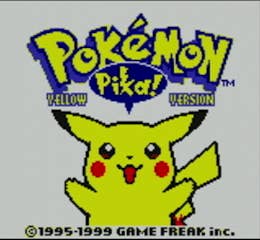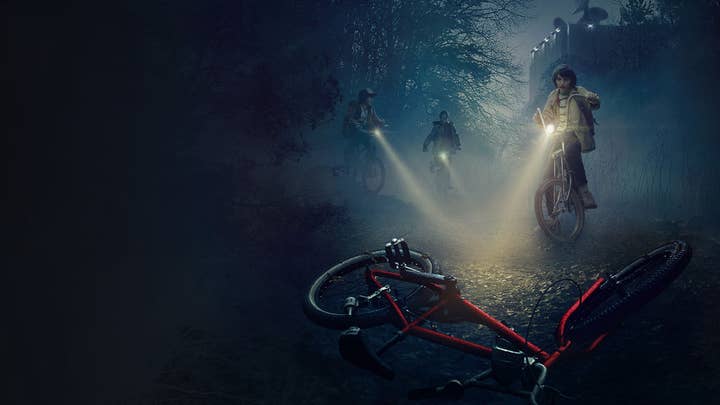Pokémon, NES Mini, Stranger Things and the commercial power of nostalgia
Why gamers are spending millions to return to the good old days
One of my favourite moments of E3 2015 took place during PlayStation's press conference.
I had managed to talk my way onto the 'blogger tables' and from there I watched the event unfold. There was a lot of excitement around PlayStation following its recent return to the top of the console industry, and practically every game was greeted with over excited whoops and cheers. And then came the Final Fantasy VII trailer. As the video played, I noticed that the young man sitting next to me was shaking. I switched my attention to him, worried that he may be having a fit, when he suddenly kicked back his chair, fell to his knees, held his hands to his head and screamed: "Oh my God! Oh My God!".
Nostalgia is a powerful thing.
The video games industry is currently capitalising on this by bringing back or paying homage to classic products from the 1980s and 1990s. You can see it most obviously in Pokémon Go and its half a billion installs, and the fact that the NES Mini has become the sell-out console of Christmas. It's evident on Kickstarter, where gamers are spending millions to resurrect Shenmue, or invest in spiritual successors to Banjo Kazooie, Castlevania and Monkey Island. Even advertising campaigns, such as the 20th anniversary PlayStation promotion and the recent '80s-tinged Call of Duty campaign, is appealing to the reminiscent consumer.
It's not a phenomena exclusive to video games, of course. This year alone we've seen the return of The X-Files, Star Wars and Ghostbusters, and next year there is Twin Peaks, Blade Runner and Baywatch. Popular UK game show The Crystal Maze has been made into a live event that is almost permanently sold out, while this summer's most talked about TV show, Stranger Things, has successfully tapped into that 1980s nostalgia.
"I think a lot of the nostalgia that is around right now comes from a desire to go back to a simpler time," suggest Ron Gilbert, creator of Maniac Mansion and Monkey Island, who is building a spiritual successor called Thimbleweed Park.
"Back then games were a little bit simpler and seeping with charm."
"For those growing up in the '80s and '90s, the films we watched, the games we played - there is a defining, shared appreciation and it resonates with so many people, including those otherwise not engaged with the media any more.
Dan Long, Insert Coin
That desire to go back to a simpler time is something merchandise companies have capitalised on. Insert Coin, a UK-based clothing firm, has produced a series of official products based around classic gaming IP. In fact, it tapped into the nostalgia around Pokémon in August by opening a pop-up shop selling attire featuring characters from the original Pokémon games.
"People are definitely always nostalgic for the things they grew up with - and not just for the originals, but for new, reimagined versions following in the same footsteps," says Dan Long, head of communications at Insert Coin.
"Across all media, things like Doom, The Force Awakens and Stranger Things have underlined that perfectly. For those growing up in the '80s and '90s, the films we watched, the games we played - there is a defining, shared appreciation and it resonates with so many people, including those otherwise not engaged with the media any more. I think retro brands fill a unique gap and remind us all of safer, simpler times - when all we had to worry about was making sure Sonic didn't drown in Labyrinth Zone or rage-quitting Goldeneye because your friend chose Oddjob. Those moments are well and truly burnt into our collective memories."
Pokémon is the brand most effectively capitalising on this nostalgia right now. The latest 3DS games have sold so well that they're amongst the biggest launches of the year, and then there is Pokémon Go, which is probably the biggest entertainment product of 2016.

Mike Quigley, CMO at Pokémon Go creators Niantic, recalls the moment that the hit mobile game was revealed. "When we did the announcement with Mr Ishihara (Pokemon Company), Miyamoto-san (Nintendo) and Masuda-San (Game Freak) in Tokyo back in September 2015, we all immediately went to check out the reaction to the trailer on social media and the forums.
"We were most excited by the reactions from not the Ingress players [Niantic's previous title], who we knew would be excited about another game, or the active Pokemon players, but from all those lapsed Pokémon fans. The people that aren't as active on current games, and we've given them a reason to come back.
"Even back then, before we'd tested it, we had that feeling that this might appeal to the broad range of Pokémon fans. And when we started to see those reactions on the internet it was just overwhelming."
The surge in popularity for classic, retro and nostalgic product feels new, but it's only really new to video games. In movies, TV and music, remakes, returning franchises and reunion tours are quite common. So why is this happening now to video games?
James Schall, digital distribution manager at Sega (which this year launched the Mega Drive Classics Hub on Steam, complete with mod-support for the likes of Sonic the Hedgehog, Toejam and Earl and Streets of Rage) has a theory.
"Retro has always been here," he observes. "Retro for the '80s and '90s is in vogue, but that's nothing new. Back in the '80s, the 1950's were retro and fashionable, just look at TV Shows like Heidi-Hi or movies like Back to the Future and comics like Dan Dare. In the 1990s, it was the '60s - Austin Powers, Flares, hippy chic. Noughties it was the '70s, and now we're heading off to the mid and late '80s and '90s.
"Adults who grew up with these things look back to reminisce and connect with a simpler time. Sounds and sights ignite memories.
James Schall, Sega
"There's a lot of focus put on retro stuff, and games are now part of that dynamic. Adults who grew up with these things look back to reminisce and connect with a simpler time. Sounds and sights ignite memories. Games used to be locked to a system or console, and unless you were a pirate, you'd have to dust off your console or Spectrum and hoped the tape deck still worked. Thankfully, we've caught up with the music and film industries and have opened our content up beyond the formats they were played on originally."
Yet nostalgia in and of itself is not a license to print money.
Take the recent X-Files series, or the Ghostbusters movie, or even Mega Man spiritual successor Mighty No.9. The lukewarm critical reception to these led to small returns for their creators (only The X-Files is likely to continue).
However, there's no exact science to being successful with classic IP, either. Schall suggests that: "What you create has to feel the same as the original and not altered too much. If you're going to modernise it, then allow options for players to carry on playing as they experienced it, as well." This worked well for the Sega Mega Drive Classics Hub on Steam, which provided direct ports of older titles, but also offered optional upgrades and even Mod support. 350,000 Mega Drive games were subsequently sold in under a month.
Nintendo also capitalised on this with its NES Mini machine. Nintendo has released many of the games bundled with this product before (countless times), but by packaging them up in a clever way, it has managed to appeal more broadly, whilst simultaneously satisfying retro fans with faithful recreations of both the software and hardware.

However, this strategy is not something adopted by Pokémon Go. The game features many of the iconography and characters from the original Pokémon games, but is an entirely new genre. Its success came from combining the popular old IP with a new and innovative form of gameplay.
Likewise with Stranger Things, which looked and felt like ET and Stand By Me, but was actually a very different, scary, sometimes violent show that was streamed via Netflix in one go. Both pieces of entertainment mixed old-world feelings with new world design.
As the video game audience gets older, the chances to bring back classic IP and genres will increase, giving the industry the sort of opportunities that the worlds of film, TV, music and books have enjoyed for decades.
But it's a discerning audience, that won't be fooled by low quality or unimaginative efforts that try to capitalise on this desire to return to 'the good old days'
